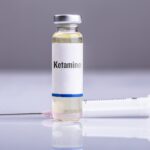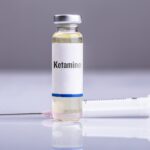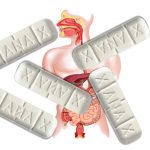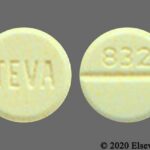How Long Does Ketamine Stay In Your System?
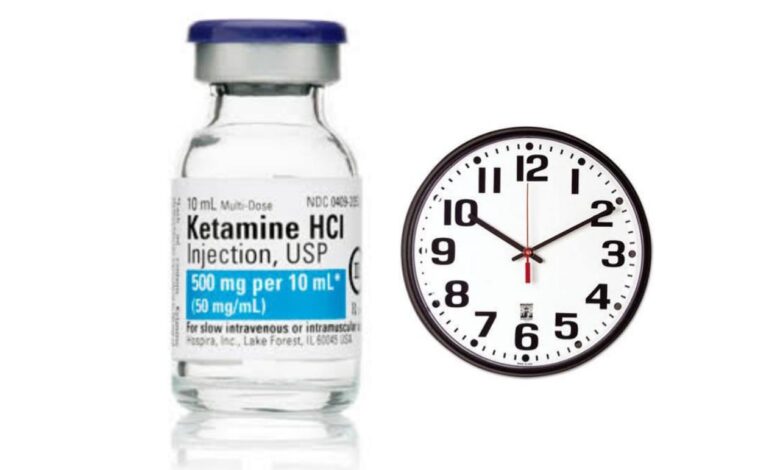
Ketamine, also referred to as Special K, Kit Kat, cat valium, Dorothy or Vitamin K—is an anesthetic for animals that is abused as a recreational drug. It is especially popular in the club scene among young adults. Ketamine is defined as a dissociative anesthetic due to its sedating effects, which produce an out-of-body experience where the user feels detached from themselves and their surroundings. Ketamine also distorts the user’s perceptions of sight and sound and can make it difficult to move. At extremely high doses, users have reported feeling as if a “near-death experience” is happening. Other users report that they experience a “state of utter bliss” on Ketamine.
Ketamine is sometimes used in medical settings, such as to sedate children who have had adverse reactions to other anesthetic medications, as well as in radiation and burn therapy. It is also used in situations where sedation is necessary but stronger anesthetics may be too much for the individual to handle. Ketamine (sold under brand name Ketalar) is a schedule III controlled substance, the same category as codeine and anabolic steroids. Schedule III substances can lead to physical dependence, but are very likely to lead to psychological dependence.
How is Ketamine Abused?
In addition to its legal, medical uses, ketamine and synthesized analogs have become drugs of abuse with hallucinogenic properties. It has also been used as a “date rape” drug.
When abused, it is typically insufflated (“snorted” up the nose) in social situations. It is also injected, consumed orally as a liquid, or smoked in marijuana or tobacco. It is frequently abused in combination with other substances, such as cocaine or amphetamines. Use with multiple drugs has been fatal.
When misused, it is often sourced via the illegal diversion of prescription products, but analogs may be found on the streets.
How Quickly Does Ketamine Work?
- An injection yields a quick response, with effects occurring in seconds to minutes.
- “Snorting” leads to effects in roughly 5 to 15 minutes (this is the most common method of abuse).
- Oral consumption requires between 5 and 30 minutes.
The effects of abuse typically last 1 to 2 hours, but the users judgment, senses and coordination may be affected for up to 24 hours or longer. Sensations the user may seek include floating, stimulation and visual effects.
High doses may dangerously reduce breathing, lead to muscle spasms or weakness, dizziness, balance difficulty, impaired vision, slurred speech, nausea and vomiting, and severe confusion.
Binge use, where the user indulges in the drug in excess amounts in a short period of time has been reported, as well.
How long does ketamine stay in your system?
Ketamine is a lipid soluble compound, has an initial rapid distribution and large volume of distribution, with a half-life of 10 to 15 minutes. Secondarily, the drug distributes into peripheral tissues with a slower elimination half-life of up to 3 hours, undergoes hepatic metabolism and is excreted in the urine.
Approximately, 90% of ketamine is excreted in the urine in the form of metabolites. From a clinical standpoint, it is estimated that a drug is effectively eliminated after 4-5 half-lives, meaning the majority of ketamine should be out of the system of an adult in about 10 to 12.5 hours. Factors such as age, body mass, metabolic rate, drug dosage, and route of administration can affect the duration and elimination of the drug.
A study published in the International Journal of Legal Medicine found that ketamine can be detected in hair up to 4 months after a single dose. Ketamine and its metabolites were also detected in scalp samples collected by a wet cotton swab up to 48 hours after administration of the drug. In a study of urine samples collected from hospitalized children who had received ketamine as an anesthetic, ketamine could be detected in the urine up to 11 days after drug administration and its metabolites could be detected for up to 14 days.
How to eliminate ketamine from your body faster
There are several ways you can help your body eliminate Ketamine faster, drinking lots of water, is a good way to start because it flushes out your system, bringing chemicals, toxins, fats, and other unwanted items with it as it leaves your body. The more water you drink, the more you end up flushing out.
Another thing you can do to eliminate Ketamine faster from your body is to cut down on sugars and bad fats, in addition to avoiding processed and refined foods, as they have little nutrient value and are hard for your body to digest. The best way to get your body jump-started on the elimination process is by juicing. Drinking all-natural juiced fruits and vegetables is basically a shortcut to getting all the vitamins and minerals your body needs.
Here’s a list of foods that are excellent for detoxification:
- Chia seeds, cilantro, parsley, and lemon leech on to impurities in your intestines and help dispose of them.
- Green leafy veggies: kale, romaine, wheatgrass, seaweed, and others are a great source of fiber to flush out your body and antioxidants to boost your immune system.
- Berries: strawberries, blueberries, and raspberries are another source of antioxidants, which help fight disease.
- Yogurt contains probiotics, which keep your digestive tracts happy and healthy.
- Wild-caught fish, avocados, and almonds are high in Omega 3 fats, which can keep your cravings down.

